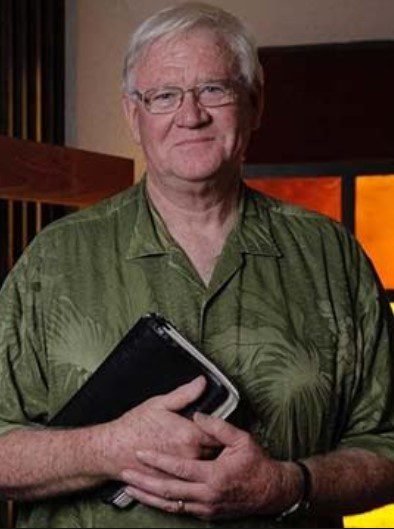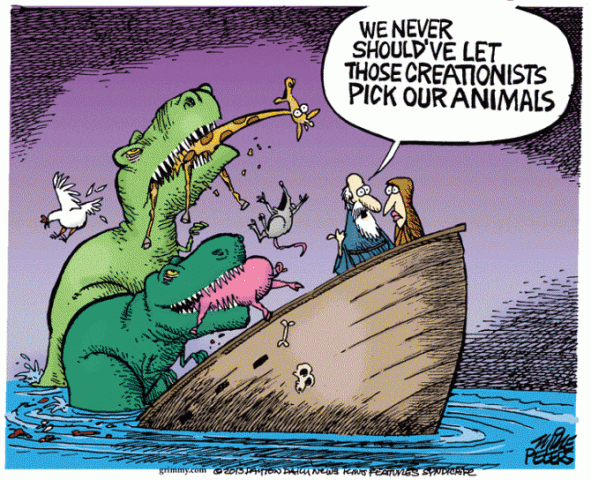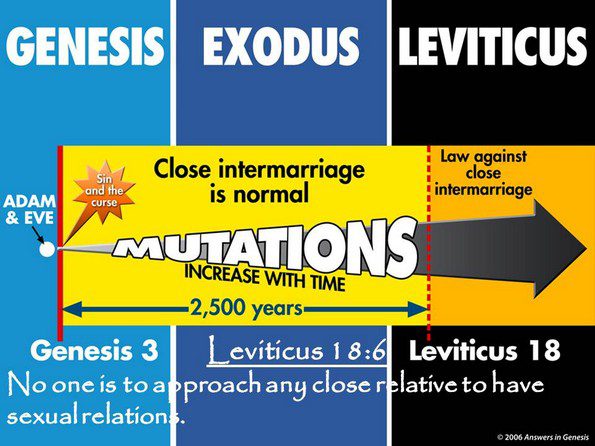
Twelve years ago, I walked out the doors of the Ney United Methodist Church, never to return. While I still had a modicum of belief in the existence of a God, I was finished with organized, institutional Christianity. Once free of the church, it was not long before I slid to the bottom of the slippery slope of unbelief. Since then, numerous Evangelicals have attempted to win me back to Jesus or restore me to good standing with the church. Try as they might, I remain an unrepentant atheist — an apostate and enemy of Christianity. Some apologists have concluded that I have committed the unpardonable sin or that God has given me over to a reprobate mind.
What follows is a list of seven things that Evangelicals have said to me over the years in their attempts to get me to renew my membership with Club Jesus®. I have no doubt that every Evangelical-turned-atheist has heard the same things.
❶ I’ll Pray for You
I’ll pray for you is the number one statement Evangelicals make to those who have left the faith. According to Evangelicals, prayer can fix any problem, including turning atheists into believers. Here’s the problem with this kind of thinking: prayer doesn’t work. For many former Evangelicals, unanswered prayer is one of the reasons they deconverted.
During the deconversion process, I made a careful accounting of past prayers and their answers. I specifically focused on answered big-need prayers. In every case, I was able to trace the affirmative answer back to human instrumentality. While I certainly had several I can’t explain it moments, these were not enough to lead me to believe that the Christian God answered prayer.
And here’s the thing, I don’t know of one Evangelical-turned-atheist who has ever returned to Evangelicalism. Despite all the prayers, those who leave don’t return. Wouldn’t it be a big boost for Evangelical stock if God reached down and saved Bruce Gerencser, the atheist preacher? Imagine what a splash it would make if someone such as I returned to the faith. But it doesn’t happen. Why is that?
For many former Evangelicals, we deconverted because we learned that the Evangelical church is built on a faulty foundation: the inspiration, inerrancy, and infallibility of the Bible. Once people realize and accept that the Bible is not what Evangelicals say it is, they are then free to examine more carefully the central claims of Christianity. In my case, I found that Evangelical beliefs could not withstand intellectual scrutiny.
No matter what I say, Evangelicals are going to continue to pray for me. Rarely does a week go by without several Evangelicals letting me know that they are storming the throne room of God on my behalf (or praying God will kill me). Fine, by all means, pray. But there is no need to let me know that you are doing so. Surely God is able to hear and answer your prayer without me knowing about it.
❷ Have You Ever Heard the Gospel?
The short, snarky answer is this: of course not! I spent 50 years in the Christian church and pastored Evangelical churches for 25 years, yet I never heard the gospel one time. Amazing, isn’t it? When Evangelicals take this approach with me, what they really want to know is whether I have heard their version of the gospel. You see, there is no such thing as THE Evangelical gospel. Evangelicals incessantly fight over whose gospel is true. Calvinists and Arminians are fighting a seven-century war over which group has the faith once delivered to the saints. The Bible says, One Lord, One Faith, One Baptism, yet Christians have spent 21 centuries proving God a liar. The Bible tells us that Christians will be known for their unity and love, yet these beliefs have been turned on their head by sectarians who believe that the only unity and love possible is with people who are part of their exclusive club.
When Christians ever figure out what the gospel is, I hope they will let me know. Until then, I plan to pop some popcorn and watch the comedy known as the internecine wars of Christianity. As one commenter on Facebook said, and I paraphrase: Evangelicals think that their battles over right doctrine are some sort of intellectual pursuit. They are not. From the outside, all the wrangling over doctrinal minutia looks a lot like toddlers fighting over toys.
❸ God Laid You on My Heart
Several years ago, a former long-time friend and colleague in the ministry contacted me, out of the blue, on Facebook, and told me what he thought of my deconversion and its effect on my family. Needless to say, his words were not kind, and after we traded a couple of emails he stopped writing.
Now my former friend is back. Why? God laid me on his heart. This time, he decided to approach me in a kinder, more respectful way. We traded emails that talked about our families and that was the end of that. While this man was, at one time, my closest friend, we no longer have anything in common. The elephant in the room will always be my atheism and intellectual assault on Evangelical Christianity. And I get it, I really do. It is hard to maintain a friendship with someone who thinks your beliefs are intellectual rubbish.
Over the years, numerous former church members and ministerial colleagues have contacted me because they believed God had laid Bruce Gerencser on their hearts. Instead of wanting to catch up or talk about old times, they thought God has a personal mission for them: contact Bruce Gerencser. In most cases, their message from God is preceded by them doing a web search for my name. In other words, they wondered what I was up to, so they fired up their browser, loaded Google, typed in my name, and were then presented with pages of links for Bruce Gerencser (I am the only Bruce Gerencser in the world). Was it God who was leading them to do the search, or was it curiosity, wondering what Bruce is up to these days?
As an atheist, I don’t think God exists, so Evangelicals telling me that God laid Bruce Gerencser on their hearts has no effect on me. Sometimes, I want to ask Evangelicals how they KNOW God talked to them about me, but I already know all the stock answers for such a question. Evangelicals know what they know, and all the reason in the world won’t change their mind.
❹ God is Trying to Get Your Attention
Evangelicals believe that their God, as owner of everything, is personally and intimately involved in his creation. Despite evidence to the contrary, Evangelicals believe that God is an everyday, real presence, not only in their lives, but the lives of every person, saved or lost. When Evangelicals read my story, they often focus on the health problems I have. See, Evangelicals say, God is afflicting you so he can get your attention. If I really believed this to be true, I would immediately become an Evangelical again. I would be quite willing to put serious time in at Club Jesus® if it meant that my pain and suffering would go away. (This is sarcasm, by the way, as you shall see in a moment.)
However, when I take a careful look at the “health” of Evangelicals, I see that they are every bit as “afflicted” as the unwashed, uncircumcised Philistines of the world. Well, the Evangelical says, God uses sickness to test, try, or punish Christians. Far more important than bodily health is spiritual health. Sure . . .
Each and every day is a struggle for me. I’ve detailed this many times over the years, so I won’t bore you with the details again. If I thought that the unrelenting pain I suffer is God’s doing, I highly doubt knowing this would turn me into a worshiper of Jesus. What kind of God hurts people so they will love and worship him? In the real world, such abusers are considered criminals, the scum of the earth. Yet, when God abuses people it is because he loves them and has a wonderful plan for their lives. No thanks! I have no interest in worshiping such a God. I would rather burn in Hell than worship a God who spends his days inflicting pain, suffering, disease, and death on not only humans, but all living things.
❺ You’ll Go to Hell if You Don’t Accept Jesus
The more Fundamentalist the Evangelicals, the more likely they are to tell atheists and unbelievers that the latter will end up in Hell unless they repent of their sins and put their faith and trust in Jesus Christ. In other words, God is saying that if people don’t accept his foreordained way of salvation, he plans to torture them eternally in a pit of fire and brimstone. In what other setting does such an approach work? Hello, I am your local Kirby Sweeper salesman. If you don’t buy a sweeper from me, I will burn your house to the ground. Such a psychopath would quickly be arrested and locked up. Yet, God, who is every bit as psychopathic as the Kirby salesman, is given a pass.
When Evangelicals try the Hell approach, I quickly tell them that I don’t believe in the existence of Hell; that the only hell is that which humans inflict on one another. Sometimes, toying with them, I will ask them: WHERE is Hell? No answer is forthcoming. Most of the time, I let Evangelicals know that threatening me with Hell will not work. I am immune to being threatened into anything. I spent most of my preaching career threatening people, warning them of the suddenness of death and the certainty of Hell. Over the years, hundreds of people responded to my threats, embracing the wonderful, loving, psychopathic God of Christianity. I now know that such an approach psychologically harms people. Constantly being warned about impending eternal judgment often leaves deep and lasting emotional scars. Consider me scarred.
❻ I Know the Holy Spirit is Speaking to You
Some Evangelicals, those who are more liberal-minded and have kind hearts, read a few of my blog posts and then “discern” that the Holy Spirit is speaking to me. Such people often have a great affinity for my critiques of Evangelicalism. In fact, some of them, not paying attention to the fact that I am an atheist, think I am a member of their club. I have received numerous emails from “fellow” brothers and sisters in Lord. When I respond and let them know that I am an atheist, they often can’t believe that I am a child of Satan. How could the Devil’s spawn ever write the way Bruce does? they think to themselves.
I happen to be quite conversant in all things Evangelical. Even though I haven’t pastored a church in over 17 years, I still follow the machinations of Evangelicalism quite closely. It is a subject that interests me, and I suspect this interest shows in my writing. However, my pastime should not in any way be confused with the Holy Spirit speaking to me.
Since I don’t believe in God, telling me that the third part of the Trinity is speaking to me has no value. First, how can anyone possibly KNOW that the Holy Spirit is carrying on a conversation with me in my head? Isn’t such a thing beyond the purview of even the sharpest of God’s discerners? Telling me that the Holy Spirit is speaking to me is akin to telling me that aliens from a far-away galaxy are telepathically communicating with me. The only voices in my head are mine.
❼ Do You Want Your Children or Grandchildren to Grow Up Without Knowing God and Having No Morals?
Ah yes, the classic do it for the kids line of thinking. Here’s the thing: now that I am 63 years old, I have had six decades to contemplate belief in God and its effect on the human race. That’s a long time. I have spent most of my life drinking deeply at the trough of Christianity. I now know that the water in the trough was a mirage. I thought the healing waters of the Christian God imparted morality and ethics to all who would drink, but these days I’ve come to see that, while religion can play part in dispensing morality and ethics, it often, thanks to rigid dogma, proves to be an impediment to moral and ethical development.
Evangelicals, in particular, think that morality and ethics ONLY come from the Christian God. No matter how many studies and arguments prove that such a claim is not true, Evangelicals continue to hang on to the belief that their God and the Bible are the sole sources of morality. This kind of thinking has turned into what is commonly called the culture war. Evangelicals demand that everyone live according to their moral code. They even go as far as using the government to force others to live by their peculiar interpretations of the Bible. If only the Ten Commandments were taught in school, America would be great again, Evangelicals say. However, when unbelievers take a close look at how Evangelicals live, they quickly find out that God’s chosen ones don’t practice what they preach. If the Evangelicals are anything, they are hypocrites.
My six children are all grown. All of them have made up their own minds about God. None of them worships the Evangelical God. For the most part, my children are indifferent towards religion, ALL religion. My thirteen grandchildren? I hope they never see the inside of an Evangelical church, apart from funerals and weddings. I think Evangelical belief often causes psychological harm. In some cases, such beliefs can lead to abuse or turn people into abusers. Why would I ever want my grandchildren within a light-year of an Evangelical church?
If I could script the lives of my grandchildren (and I can’t) I would love for them to take a World Religion class. I know that exposing them to other religions besides Christianity will dampen or destroy any affinity they might have for Evangelicalism. Exposure to knowledge is a sure cure for Fundamentalism. The more my grandchildren learn about religion (and humanism and atheism), the less likely they are to follow down the same pernicious path Nana and Grandpa followed decades ago. If they still decide to embrace some sort of religion, I hope they will embrace practices that affirm their self-worth and cause them to love others. Such values cannot be found in Evangelical churches because they are always secondary to right belief and rigid obedience.
As I watch my grandchildren grow up, I can’t help but see how different they are from their parents (and this is due to their parents allowing them wander down paths they themselves were never allowed to go). I revel in their thirst for knowledge, knowing that satisfying this thirst will inoculate them from being infected by the mind-killing disease of religious Fundamentalism. Perhaps in their generation the curse will finally be broken. While Polly’s Fundamentalist mom laments what our unbelief is doing to our children and grandchildren, I see things differently. I now know that intellectual and personal freedom leads to lives filled with meaning and purpose. Most of all, I want those who bear my name to live lives filled with happiness. Shouldn’t that be our hope for everyone?
Bruce Gerencser, 66, lives in rural Northwest Ohio with his wife of 45 years. He and his wife have six grown children and thirteen grandchildren. Bruce pastored Evangelical churches for twenty-five years in Ohio, Texas, and Michigan. Bruce left the ministry in 2005, and in 2008 he left Christianity. Bruce is now a humanist and an atheist.
Connect with me on social media:
Your comments are welcome and appreciated. All first-time comments are moderated. Please read the commenting rules before commenting.
You can email Bruce via the Contact Form.










